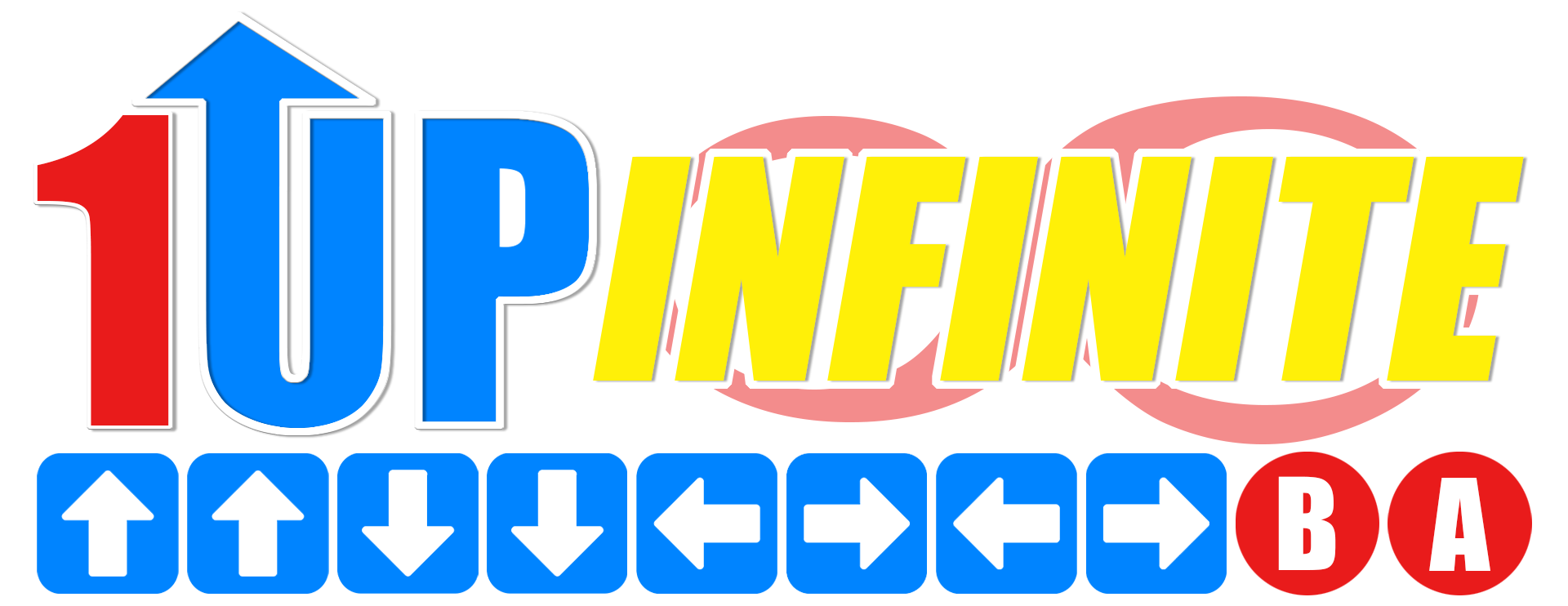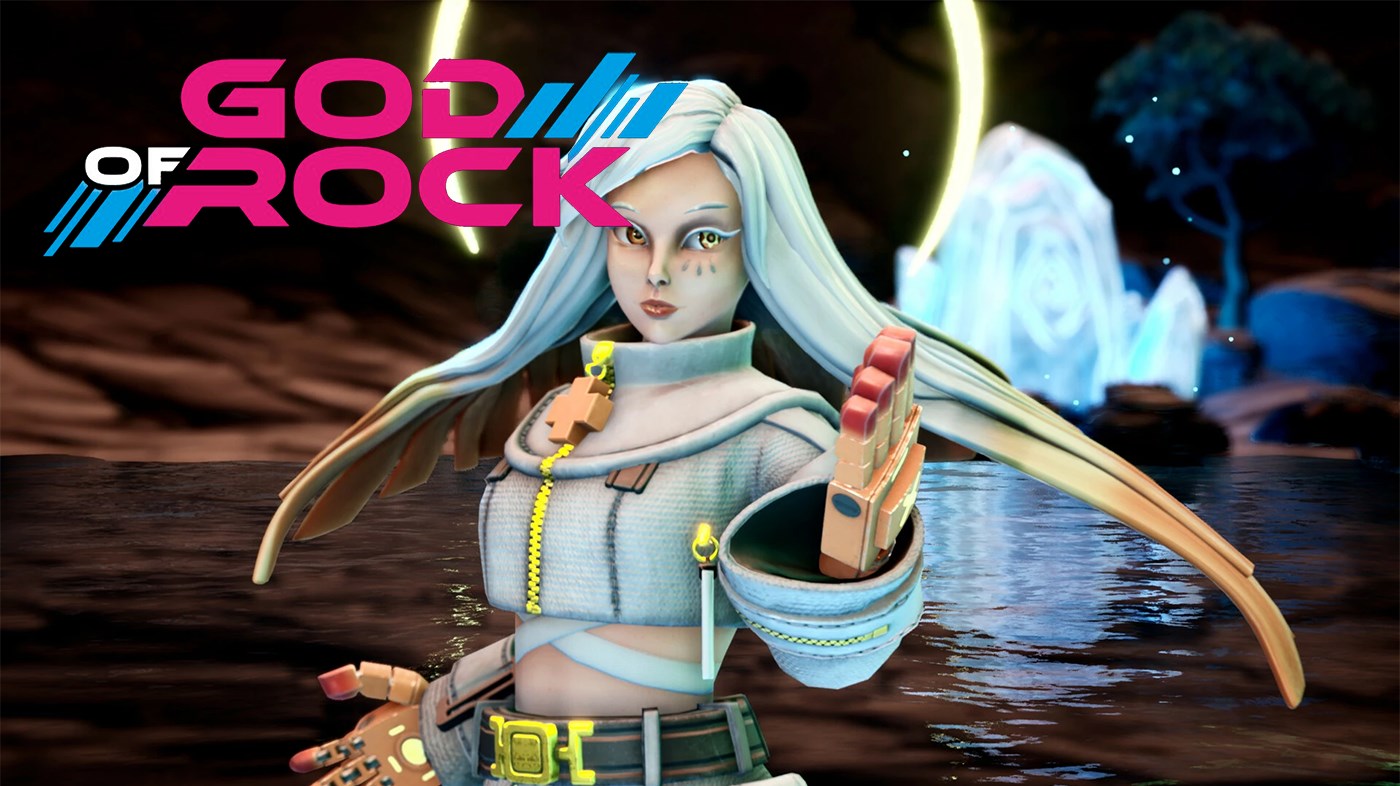God Of Rock
Before I begin the review, I wanted to give a huge thanks to the team at Modus for allowing me and several others a chance to showcase God of Rock during the Steam Indie Fighting Games Fest over the weekend. While there were many games I didn't get a chance to properly showcase during the event, all of which I will gladly feature on a later date, I did get a chance to show off two games before their release. The first was Yomi 2 and the second, of course, was God of Rock.
The last time we looked at God of Rock was coincidental during a previous Next Fest where I went into detail on the game's mechanics. A "rhythm fighting game" hybrid, God of Rock takes the core gameplay of both titles and blends them in a way I hadn't seen since the PlayStation and early PlayStation 2 era. Rhythm and fighting games are both important fixtures in arcade culture. Arcade patrons can recall a time when if there was a long line for one fighting game, the other machines are open game to pass time. The Dance Dance Revolution and Street Fighter communities often intertwined and most players became proficient in both.

It was rare to see rhythm games on consoles as most required a "dance pad" to emulate the arcade experience at home. Other games decided to incorporate elements of both to tap into the rhythm game niche with a fighting game infrastructure to make progression easy to follow. Games like the Bust A Groove series were one of the first to successfully make this work as it was just as important to do well in a rhythm game sense while also ensuring victory over an opponent. Rhythm games are more of a "single-player" experience and competitive rhythm gaming is based on scores.
What games like Bust A Groove established was that even if you weren't the most skillful or technical player on a rhythm aspect, you could still win with strategy. I spoke about how attacks in Bust A Groove 2 can steal entire solos from the opponent and how Britney's Dance Beat ruined an opponent's note stream depending on how well the opposing player performed. These attacks can also be seen in other genres that are usually single-player experiences such as Super Puzzle Fighter 2 Turbo or Puyo Puyo Tetris. Most rhythm games that have been released offer hours of single-player experiences but very few in the way of a "competitive experience."

The two biggest rhythm games that offer multiplayer are DJMAX Respect V and EZ2ON Reboot R although the gameplay doesn't do much to offer interactions between the players. If one player is doing great on a song and/or chart, there will be nothing stopping them from continuing to play well. In God of Rock, every character in the game has a way to interact with the opposing competitor in a myriad of ways, offering many win conditions for each type of player. As every good rhythm game is known, first, let's begin with the story of God of Rock.
Each character has a dilemma that's hurting their current way of life. Some may be workaholics desperate for a break, others are "anti-establishment," while one, in particular, wants everyone to love him, including dogs. There's an omnipotent being of rock-n-roll with the power to grant any wish a reality should the character defeat him. Each character's ending has their problems resolved and all is right within their world. It's important to mention that the game is titled God of Rock and not Gods. There are non-human characters, including an angel and an alien, but most of the characters featured in the game are humans. Some are suited up and armed to the teeth for music, but it's nice to have a cast of characters that are relatable.

One of the characters I'll cast a spotlight on that wasn't included in the demo is Edith. Edith is the video game equivalent of how I am when I have a week of deadlines, an important event to travel out to on the weekend and look forward to another week of releases. In God of Rock, Edith's a comic book illustrator who also has skills as a composer due to making music to pair with her strips. She's a restless worker bee who just wants rest, but in the content creation line of work, there are no breaks. Gameplay-wise, Edith fits into one of two piles that I can separate the roster of God of Rock.
The first pile is "Characters That Play Their Own Game." Hilde, the angel that I played in the demo, is a fundamentally based character who heals in proportion to how well a player is hitting their notes. Her attacks amplify her healing potential while dealing damage based on how proficient her healing ability becomes. While she still attacks her opponents, her self-sustainability is her "selling point." Characters like Edith fall under the "Characters That Force You To Play Their Game" category, with her entire kit meant to interact with her opponent.

Edith's level 1 increases her meter gain in proportion to the "Judgment" between her and her opponent. In rhythm game terms, "Judgment" gauges the accuracy of a pressed note in accordance with the beat. In God of Rock, hitting a "Flawless" or "Perfect" means that the notes were hit just on the beat or exactly on the beat. The further the player is from the beat, the lower the judgment rating gets until you "Miss." If Edith lands many "Flawless" notes but an opposing Hilde only manages to hit "Greats," Edith will gain far more meter than if both players hit "Flawless" notes.
It's a good thing, in that regard, that Edith has the ability to completely eliminate "Flawless" and "Perfect" judgments from her opponent with a timed debuff. This ensures that Edith will always gain the most meter from her level 1, but it also helps her level 3. For every "unmatched" Flawless and Perfect judgment, Edith drains life from her opponent and heals from the damage. Her EX move, which requires 1 bar, extends the duration of her buffs and debuffs while her Ultra attack inverses her opponent's controls.

Edith's kit involves disrupting the player's ability to hit notes accurately, even if they happen to be the most accurate rhythm game player in God of Rock. Because she forces you to play her game, playing as a character who can defend themselves, like Queen, can help mitigate matters. Each character has good and bad matchups, so one character may dominate in one situation while others make be efficient in others.
Another example of a character who impressed me was Champ, which falls under the "Play Their Own Game" category. That's because Champ literally plays the game for the player in God of Rock, to an extent. His stronger attacks enable auto-play, automatically hitting Flawless and Perfect notes for a set period, while the player uses his attacks to continue to gain the advantage. Champ has the charisma of one who is full of himself, but every missed note will drain from the meter, representing his "poser" personality. A character that "plays the game for you" is not one to scoff at, especially when it frees up some of the more technical charts. Using your own special attack is a great bonus as well.

The last example is my personal favorite, Ollie (and by extension Tophat). These are characters who play their own game and that game happens to be "pummel an opponent into submission." Ollie and Tophat can both charge their special attacks, dealing double damage for Ollie and multiple hits for Tophat. Whereas Tophat's special helps makes his other buffed specials worth even more by eliminating cooldowns, Ollie just deals out raw damage. His Ultra can also be charged, which if it's left unblocked, can deal anywhere from a quarter of an opponent's health bar. Ollie's EX move allows him to chain specials one after the other so long as he doesn't use the same special twice.
Unlike Tophat, who has utility in freezing the enemy's special moves, Ollie has no way to defend himself. All of his specials deal insane damage but if the player isn't actively charging the attacks, they won't deal as much damage as they should. He's an "all-in" character meant to end games quickly before it begins, yet the quickest way to do his most powerful skills is by playing well. It all comes back to "learning how to play rhythm games," but that's what I found great about God of Rock. There are tutorials and an in-depth practice mode that helps the player lab songs and charts while also understanding how each character works. There are other nuances that the player may pick up, like how most Ultras begin with the "up" command or level 1s begin with the "down" command.

I've been speaking with the developers on social media and they are adamant about wanting God of Rock to kick off well with the FGC. This game was created by a group of fans of both genres, specifically for fans of both genres, while also bringing newcomers to both genres involved as well. Each character plays differently from the others, with unique intros, personalities, and representations of various music.
Tophat is Brazilian so there's a lot of emphasis on scattered rhythm in his attacks, while Ollie, being a skater, represents the combo ability of the Tony Hawk's Pro Skater games. Any good rhythm game is nothing without a good soundtrack and there are tons of good songs here, referencing various genres and related to the venues in the game as well. An urban environment would have more EDM-based songs while a volcano would have heavy riffs for the player to survive.

God of Rock may not be the easiest game to grasp, but as Modus showcases the game in public events, including Combo Breaker in May, there are many opportunities for curious players to try this title out for themselves. As a fan of both games, I recommend it as it's difficult to make a game that combines two notoriously "difficult to get into genres" in a way that's accessible for all.
God of Rock releases on April 18th, 2023 for Steam, Nintendo Switch, PlayStation 4, PlayStation 5, Xbox One, and Xbox Series X

